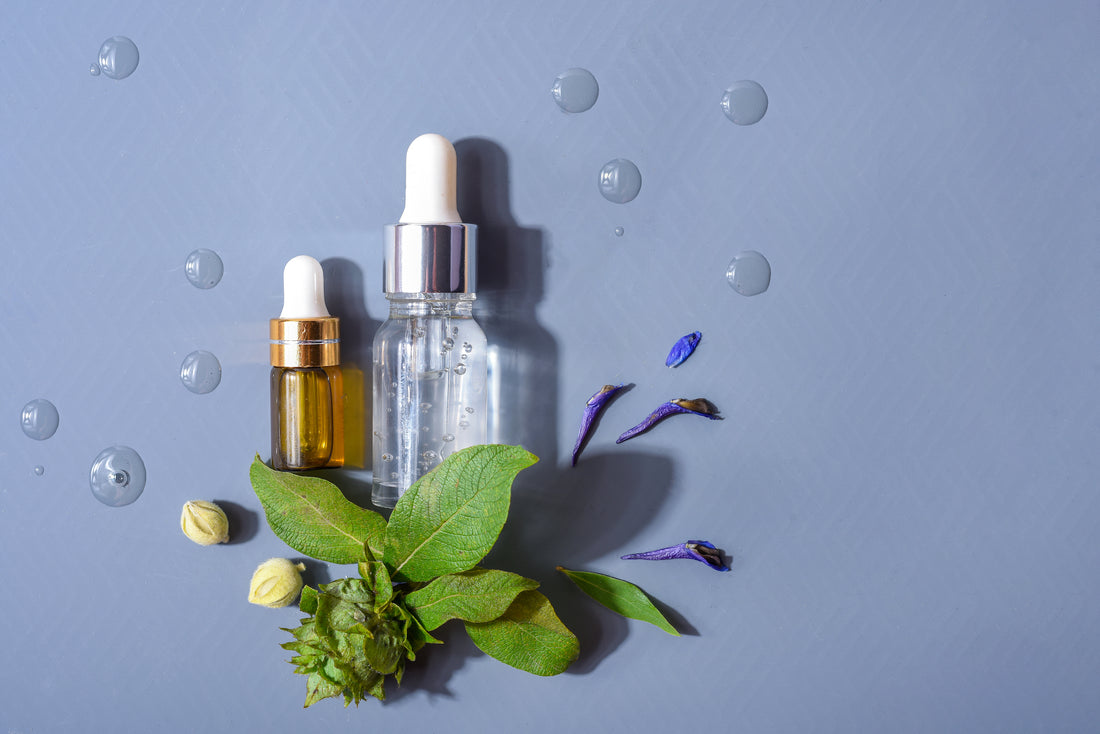
Bakuchiol vs. Retinol: The New Alternative Explained
What is bakuchiol? This plant-based ingredient is an alternative to retinol that has quickly become all the rage, but if you don’t actually know what it is, you’re surely not alone. Find out all about the differences and similarities between bakuchiol vs. retinol as we explore this new vegan-friendly skincare ingredient!

Bakuchiol vs. Retinol: The Basics
Retinol, derived from Vitamin A, is a popular skincare ingredient for its ability to stimulate collagen, decrease the appearance of lines and wrinkles, strengthen the foundation of the skin, minimize dark circles, and even help with acne. Retinol derivatives are in everything from moisturizers to eye creams to toners.
But retinol is sometimes unfriendly to those with sensitive skin, causing it to become exceptionally dry and irritated. Retinol is so powerful, however, that people will use products with it anyway, often attempting to combat the resulting dryness and irritation through massive amounts of moisturizer. Bakuchiol vs. retinol is an important consideration because bakuchiol is a gentler alternative that has similar results as retinol.
Bakuchiol (which is pronounced ba-koo-heel) is a plant extract, derived from seeds and leaves of the Psoralea corylifolia plant or babchi plant, known for its use in traditional Indian and Chinese medicine and Tamil Siddha practices. Although it first hit the skincare scene in the ‘70s, but hadn’t received much attention until recent research highlighted the effectiveness of many of its properties: antioxidant, anti-inflammatory, and antibacterial. Bakuchiol, as it turns out, can help heal and soothe the skin. Not bad in the battle of bakuchiol vs. retinol!

The Science Behind Bakuchiol vs. Retinol
This is because, when it comes to bakuchiol vs. retinol, these ingredients both increase cell turnover in the same way. This is what stimulates collagen and thus reduces the visibility of things like fine lines and wrinkles, as well as aiding with generally loose and damaged skin. But what bakuchiol doesn’t do is decrease the size of oil glands, thus sidestepping the dryness and irritation that retinol can create for some. That’s not the only difference in favor of bakuchiol: unlike retinol, which increases our skin’s sensitivity to the skin, bakuchiol actually helps the skin to be less sensitive to the sun! (That said, you should always make SPF a top priority in your skincare routine, no matter the season!)
Plainly put, the big difference between bakuchiol vs. retinol is that bakuchiol is less irritating because it doesn’t affect your oil glands. They are both natural, but only bakuchiol is vegan, as retinol is sometimes derived from animal products.
Like many other topical retinol products, it’s often recommended to use bakuchiol in evening skincare routines. That said, it’s also perfectly safe to use twice a day, in the morning before your daily moisturizer as well as in the evening with your night creams and serums. It’s also generally safe for all skin types! Bakuchiol plays well with other hydrating ingredients, but you should likely avoid pairing it with glycolic acid, as that might corrupt the formula.

In one study published in The British Journal of Dermatology 2018, it was found that between bakuchiol vs. retinol, no appreciable difference was found in the reduction of wrinkles or improvement in hyperpigmentation between the two ingredients! They did find, however, that those who used retinol experienced drier skin.
Many more studies have to be conducted on bakuchiol vs. retinol to confirm or further the current findings, but the stars are seeming to align in favor of this gentler alternative to retinol. If you’ve been curious about retinol skincare but worried about your sensitive skin, perhaps this plant-based alternative could be just what your skincare routine needs!
